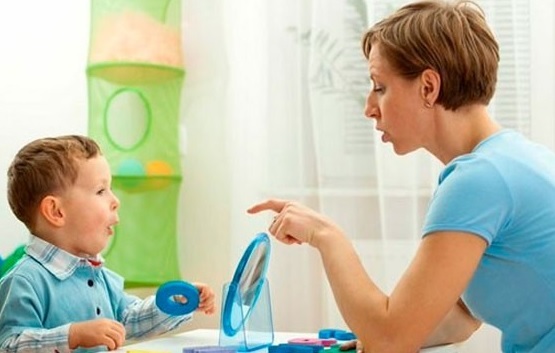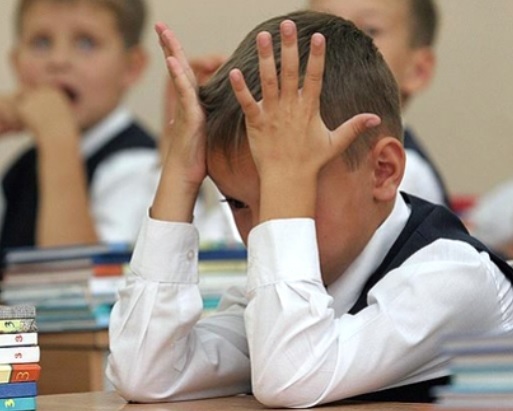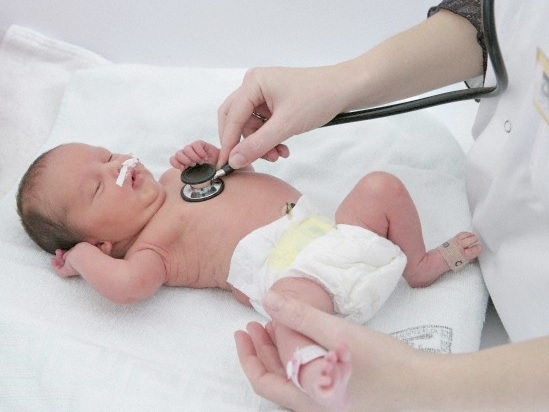The causes, symptoms and prevention of dysarthria in children
Contents:
- How does dysarthria develop in children?
- What is the child's dysarthria
- Why does a child diagnose dysarthria?
- How to treat a children's dysarthria
- Is it possible to avoid dysarthria in children?
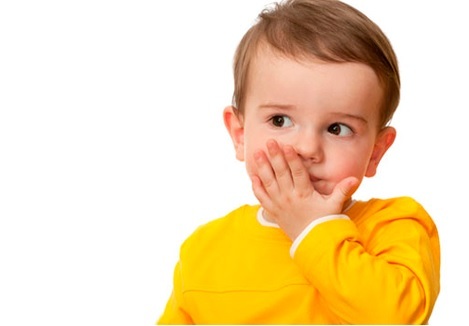 To understand another person is not a simple task, especially if this person is a child, and even more so if a dysarthria is diagnosed in a child. The task of parents and doctors is to recognize the symptoms of dysarthria in children in time, because with timely treatment this problem can be safely resolved.
To understand another person is not a simple task, especially if this person is a child, and even more so if a dysarthria is diagnosed in a child. The task of parents and doctors is to recognize the symptoms of dysarthria in children in time, because with timely treatment this problem can be safely resolved.
Dysarthria is the inability to understand and be understood because of speech disorders, which are caused by malfunctions in the central nervous system. According to statistics, this diagnosis is made almost to every second child with cerebral palsy, one in three with a delay in mental and mental development, and every twentieth child, whose development does not reveal any critical pathologies.
The diagnosis of parents is frightening, and not in vain: after all, a child with a speech disorder will require significant efforts to educate and much more attention than ordinary children. Otherwise, he will never learn to communicate with people and will be an outcast in society.
How does dysarthria manifest in children?
Many signs of dysarthria in children can be found by parents in person at home. They should be alerted if:
- child does not even begin to speak even single words;
- his speech differs monotony, while he speaks either too quickly or too slowly, but in either case, it is difficult to understand;
- words are pronounced indistinctly, blurry, their sound design is wrong;
- when chanting phrases starts to choke;
- speech of the baby nuzzling, despite its healthy nose;
- the speech device as if does not obey, the tongue can spontaneously fall out, the mouth - be either in a semi-open state, or with tightly compressed lips, while excessive salivation is observed;
- in very severe cases, complete dumbness can be fixed.
Important! Violation can be suspected even in an infant, if it inactive sucks the chest, bottle, nipple and constantly regurgitates, which also may indicate weak muscles of the mouth.
These signs are only the visible tip of the iceberg. But there are other, hidden, which are associated with impaired brain function. They can be identified only by a doctor in a hardware survey.
What is a child's dysarthria
Dysarthria is a multifarious disease. There are several of its classifications, depending on which part of the brain is in the affected area. Each type of doctor determines by characteristic external features:
- if the speech of the child is muffled, it is difficult for him to control the tongue and lips, swallow, which is associated with paralysis of the muscles of the face and speech apparatus, then he can be diagnosed with bulbar dysarthria;
- pseudobulbarnaya dysarthria in children is observed if they can not decorate their speech with diversity, prefers to replace words with synonyms, in the words they utter, individual sounds are lost;
- if the baby says something quieter, louder, chopped syllables and words, perhaps he suffers from dysarthria of the cerebellar;
- when children confuse syllables in words, constantly stumbles, his speech is like a speech of a person with stuttering, he has cortical dysarthria;
- if speech is unintelligible, voice power is unstable, all sounds are pronounced "in the nose", and speech problems worsen during excitement, then it is subcortical dysarthria;
- an erased form of dysarthria in children is diagnosed with problems with pronunciation of individual sounds - whistling and hissing;
- if problems with speech appear at temperature changes of the environment, then cold dysarthria is diagnosed.
There is also a classification of dysarthria in speech therapists who distinguish several degrees of this disease, depending on how intelligible the child's speech is: from the lightest first degree, when the child speaks clearly for everyone, to the heaviest 4th degree, when the child's speechCan only decipher his parents and then not always.
Why is a child diagnosed with dysarthria?
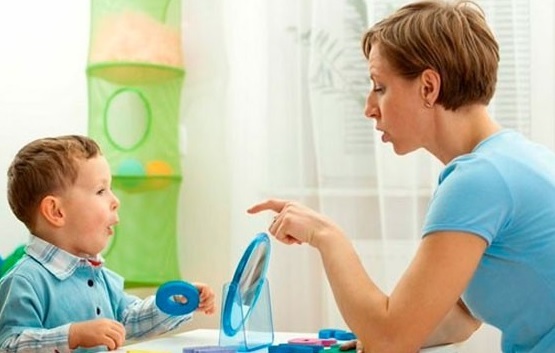 All causes of dysarthria in children are associated with problems in the central nervous system. Most often( approximately 80% of cases), dysarthria is diagnosed in children with cerebral palsy. Among other causes of this pathology are:
All causes of dysarthria in children are associated with problems in the central nervous system. Most often( approximately 80% of cases), dysarthria is diagnosed in children with cerebral palsy. Among other causes of this pathology are:
- problems in pregnancy and childbirth in mother and her baby - prematurity of the fetus, birth trauma, asphyxia, toxicosis, incompatibility of Rh factors;
- diseases - meningitis, encephalitis, jaundice, intoxication, craniocerebral trauma, ENT diseases.
- The diagnosis is made only with a careful examination of a neurologist and speech therapist.
How to treat a children's dysarthria
Not all species of dysarthria can be treated. It all depends on which part of the brain is in the affected area. The best situation is with the treatment of an erased dysarthria in children and the cold - the easiest forms of this disease. In severe forms, problems with speech can accompany a person all his life.
In general, the success in treating dysarthria in most cases depends on the timeliness of the detection of the problem. Therapy should be comprehensive:
- medication nootropic drugs are designed to activate mental activity;
- sessions with a speech therapist should correct children's speech;
- task of special gymnastics is to strengthen the muscles of the face.
In addition, complex therapy implies the development of fine motor skills, respiratory gymnastics, massage, acupuncture. The main goal of therapy is to maximally adapt the child to life in society so that he does not experience problems in communicating with people.
Is it possible to avoid dysarthria in children?
Prevention of dysarthria in children should begin before they are born. The future mother needs to worry about the health of her child in advance: do not smoke during pregnancy, eat right, do not be nervous - in short, do everything to make both pregnancy and childbirth successful.
After the birth of a child, he needs to pay maximum attention - to talk a lot, but not to sigh, to sing songs and read books together, and after discussing what has been read, to observe the world around him and share his impressions.
It's easy - keep a close eye on your baby so that if problems are found, seek medical help immediately. Dysatria can not be defeated on its own, only in a team with specialists whose advice is to be listened to to be sure of the future of your child.
write the question in the form below:

